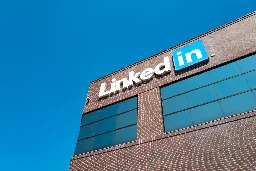Microsoft Edge is trying to forcefully get your Chrome tabs again / Microsoft has a history of tricks to get you to use Edge, and the latest one targets Chrome users once again
Microsoft has a new trick to try and get Chrome users over to Edge.

>Microsoft clearly isn’t bothered that it’s automatically starting up Edge on people’s PC and then trying to trick them into importing their Chrome data. That’s not too surprising though since Microsoft has been pulling tricks like this for more than four years now.
>Microsoft’s behavior here makes many people distrust Edge, Windows 11, and even the company’s AI efforts.
Hyundai Is Bringing Back Buttons Because Touchscreens Are ‘Annoying’
>- Hyundai is slowly backing away from the all-screen approach to interior design. >- Hyundai Design North America Vice President Ha Hak-soo said that people "get stressed, annoyed and steamed when they want to control something in a pinch but are unable to do so."
Research conducted by the Mozilla Foundation indicates that the app referred to in the article, Clue, gathers extensive information and shares certain data with third parties for advertising, marketing, and research reasons.
Here are some menstruation tracking apps that are open-source and prioritize user privacy by keeping your data stored locally on your device:
Clue vows to safeguard users following the 2024 election amid concerns anti-abortion state laws could allow phone searches for menstrual data.

>The team behind menstrual health and period tracking app Clue has said it will not disclose users' data to American authorities, following Donald Trump's reelection. > >The message comes in response to concerns that during Trump's second presidency, abortion bans that followed the overturn of Roe v. Wade in 2022 will worsen and states will attempt to increase menstrual surveillance in order to further restrict access to terminations.
It’s for your own good, mind (and some Windows 11 users will get this too)

>- A new patch is being quietly pushed to Windows 10 (and 11) PCs >- It’ll force upgrades in certain circumstances to keep the PC in support >- This update will mean more nag prompts coming to your PC
404 Media, along with Haaretz, Notus, and Krebs On Security recently reported on a company that captures smartphone location data from a variety of sources and collates that data into an easy-to-use tool to track devices’ (and, by proxy, individuals’) locations. The dangers that this tool presents.....

>404 Media, along with Haaretz, Notus, and Krebs On Security recently reported on a company that captures smartphone location data from a variety of sources and collates that data into an easy-to-use tool to track devices’ (and, by proxy, individuals’) locations. The dangers that this tool presents are especially grave for those traveling to or from out-of-state reproductive health clinics, places of worship, and the border. > >The tool, called Locate X, is run by a company called Babel Street. Locate X is designed for law enforcement, but an investigator working with Atlas Privacy, a data removal service, was able to gain access to Locate X by simply asserting that they planned to work with law enforcement in the future. > >With an incoming administration adversarial to those most at risk from location tracking using tools like Locate X, the time is ripe to bolster our digital defenses. Now more than ever, attorneys general in states hostile to reproductive choice will be emboldened to use every tool at their disposal to incriminate those exerting their bodily autonomy. Locate X is a powerful tool they can use to do this. So here are some timely tips to help protect your location privacy.
404 Media, along with Haaretz, Notus, and Krebs On Security recently reported on a company that captures smartphone location data from a variety of sources and collates that data into an easy-to-use tool to track devices’ (and, by proxy, individuals’) locations. The dangers that this tool presents.....

>404 Media, along with Haaretz, Notus, and Krebs On Security recently reported on a company that captures smartphone location data from a variety of sources and collates that data into an easy-to-use tool to track devices’ (and, by proxy, individuals’) locations. The dangers that this tool presents are especially grave for those traveling to or from out-of-state reproductive health clinics, places of worship, and the border. > >The tool, called Locate X, is run by a company called Babel Street. Locate X is designed for law enforcement, but an investigator working with Atlas Privacy, a data removal service, was able to gain access to Locate X by simply asserting that they planned to work with law enforcement in the future. > >With an incoming administration adversarial to those most at risk from location tracking using tools like Locate X, the time is ripe to bolster our digital defenses. Now more than ever, attorneys general in states hostile to reproductive choice will be emboldened to use every tool at their disposal to incriminate those exerting their bodily autonomy. Locate X is a powerful tool they can use to do this. So here are some timely tips to help protect your location privacy.
DNA firm holding highly sensitive data 'vanishes' without warning
Customers of Atlas Biomed are angry and worried about what's happened to the highly sensitive data they shared.

>A DNA-testing firm appears to have ceased trading - without telling its customers what has happened to the highly sensitive data they shared with it. > >Atlas Biomed, which has offices in London, offered to provide insights into people's genetic make up as well as their predisposition to certain illnesses. > >However, users are no longer able to access their personalised reports online and the company has not responded to the BBC's requests for comment. > >Customers of the firm describe the situation as "very alarming" and say they want answers about what has happened to their "most personal information".
>The apparent disappearance of Atlas Biomed is a mystery - but it appears to have links with Russia.
>Prof Carissa Veliz - author of Privacy is Power - points out that DNA is arguably the most valuable personal data you have. It is uniquely yours, you can’t change it, and it reveals your – and by extension, your family’s - biological strengths and weaknesses. > >Biometric data is given special protection under the UK’s version of GDPR, the data protection law. > >"When you give your data to a company you are completely at their mercy and you have to be able to trust them," Prof Veliz said. > >"We shouldn’t have to wait until something happens."
20 years of Firefox: Happy birthday, little panda! - On November 9, 2004, the Mozilla Foundation released version 1.0 of its Firefox browser
Firefox stands for the web of open standards: it's good that the browser exists. However, it is slipping into insignificance.

>Firefox stands for the web of open standards: it's good that the browser exists. However, it is slipping into insignificance.
>A healthy browser ecosystem needs diversity so that one day one company cannot dictate to everyone how they should use the internet. We've been through this before, and it didn't go well. On that note: Happy birthday, Firefox, may you have many more birthdays!
After its website was crippled for nearly a month by a cyberattack, the Internet Archive announced on Monday that it had restored one of its most valuable services—the Save Page Now feature
The digital library was taken offline by multiple cyberattacks last month and had been operating in read-only mode until Monday.

>After its website was crippled for nearly a month by a cyberattack, the Internet Archive announced on Monday that it had restored one of its most valuable services—the Save Page Now feature that allows users to add copies of webpages to the organization’s digital library. > >In a social media post, the Internet Archive said web pages that users had attempted to save since October 9 are beginning to be archived now, although it did not provide an estimate for when the process would be completed. So, if you were worried that all of that election coverage was in danger of disappearing, the Archive says it’s handling the backlog. And if you stopped archiving because it was down, get back to work. > >The organization had been operating its collection in read-only mode since October 21 as it steadily worked to restore services.
>Founded in 1996, the Internet Archive is a nonprofit based in San Francisco that provides access to historic web pages, digitized books, and a variety of other media that it has uploaded through its partnerships with hundreds of physical libraries and other partners. > >Its unparalleled collection currently contains 835 billion web pages, 44 million books and texts, 15 million audio recordings, 10.6 million videos, 4.8 million images, and 1 million software programs.
Open source tool chooses to become more open than ever

>Bitwarden isn't going proprietary after all. The company has changed its license terms once again – but this time, it has switched the license of its software development kit from its own homegrown one to version three of the GPL instead. > >The move comes just weeks after we reported that it wasn't strictly FOSS any more. At the time, the company claimed that this was just a mistake in how it packaged up its software, saying on Twitter: > >>It seems like a packaging bug was misunderstood as something more, and the team plans to resolve it. Bitwarden remains committed to the open source licensing model in place for years, along with retaining a fully featured free version for individual users. > >Now it's followed through on this. A GitHub commit entitled "Improve licensing language" changes the licensing on the company's SDK from its own license to the unmodified GPL3. > >Previously, if you removed the internal SDK, it was no longer possible to build the publicly available source code without errors. Now the publicly available SDK is GPL3 and you can get and build the whole thing.
Open source tool chooses to become more open than ever

>Bitwarden isn't going proprietary after all. The company has changed its license terms once again – but this time, it has switched the license of its software development kit from its own homegrown one to version three of the GPL instead. > >The move comes just weeks after we reported that it wasn't strictly FOSS any more. At the time, the company claimed that this was just a mistake in how it packaged up its software, saying on Twitter: > >>It seems like a packaging bug was misunderstood as something more, and the team plans to resolve it. Bitwarden remains committed to the open source licensing model in place for years, along with retaining a fully featured free version for individual users. > >Now it's followed through on this. A GitHub commit entitled "Improve licensing language" changes the licensing on the company's SDK from its own license to the unmodified GPL3. > >Previously, if you removed the internal SDK, it was no longer possible to build the publicly available source code without errors. Now the publicly available SDK is GPL3 and you can get and build the whole thing.
Linux Mint partners with Framework Laptops, aiming for full compatibility with easy-to-upgrade, high-quality laptops for Linux users.

>The October 2024 edition of Linux Mint’s Monthly News brings exciting updates, including a significant announcement about collaboration with Framework Laptops, having potential to advance Mint’s compatibility with hardware designed with flexibility, repairability, and sustainability in mind. > >For those unfamiliar, unlike most traditional laptops, which are often difficult or impossible to repair or upgrade, Framework laptops are built to be user-friendly, making it easy to replace or upgrade components. This modular approach extends the laptop’s lifespan and promotes sustainability by reducing e-waste.
A TikTok alternative called Loops is coming for the fediverse | Users own their content, and Loops doesn’t sell or provide videos to third-party advertisers or train AI on them. It will be open source
Loops promises to bring the TikTok experience to the fediverse.

>Signups opened this week for Loops, a short-form looping video app from the creator of Instagram alternative Pixelfed, reports TechCrunch.
A TikTok alternative called Loops is coming for the fediverse | Users own their content, and Loops doesn’t sell or provide videos to third-party advertisers or train AI on them. It will be open source
Loops promises to bring the TikTok experience to the fediverse.

>Signups opened this week for Loops, a short-form looping video app from the creator of Instagram alternative Pixelfed, reports TechCrunch.
Microsoft has fired two employees who organized an unauthorized vigil at the company’s headquarters for Palestinians killed in Gaza during Israel’s yearlong war with Hamas.

>Microsoft has fired two employees who organized an unauthorized vigil at the company’s headquarters for Palestinians killed in Gaza during Israel’s war with Hamas. > >The two employees told The Associated Press they were fired by phone call late Thursday, several hours after a lunchtime event they organized at Microsoft’s campus in Redmond, Washington. > >Both workers were members of a coalition of employees called “No Azure for Apartheid” that has opposed Microsoft’s sale of its cloud-computing technology to the Israeli government. But they contended that Thursday’s event was similar to other Microsoft-sanctioned employee giving campaigns for people in need. > >“We have so many community members within Microsoft who have lost family, lost friends or loved ones,” said Abdo Mohamed, a researcher and data scientist. “But Microsoft really failed to have the space for us where we can come together and share our grief and honor the memories of people who can no longer speak for themselves.” > >Microsoft said Friday it has “ended the employment of some individuals in accordance with internal policy” but declined to provide details.
>Google earlier this year fired more than 50 workers in the aftermath of protests over technology the company is supplying the Israeli government amid the Gaza war. The firings stemmed from internal turmoil and sit-in protests at Google offices centered on “Project Nimbus,” a $1.2 billion contract signed in 2021 for Google and Amazon to provide the Israeli government with cloud computing and artificial intelligence services.
Disability Rights Are Technology Rights | It’s bad enough when DRM infects your video streams, but when it comes for hardware, things get really ugly
During Disability Employee Awareness month, we call out the medical tech industry for fighting disabled people's right to repair or modify the tech that they own.

>Powered wheelchairs – a sector dominated by a cartel of private-equity backed giants that have gobbled up all their competing firms – have a serious DRM problem. > >Powered wheelchair users who need even basic repairs are corralled by DRM into using the manufacturer’s authorized depots, often enduring long waits during which they are unable to leave their homes or even their beds. Even small routine adjustments, like changing the wheel torque after adjusting your tire pressure, can require an official service call.
>People with disabilities don’t just rely on devices that their bodies go into; gadgets that go into our bodies are increasingly common, and there, too, we have a DRM problem. DRM is common in implants like continuous glucose monitors and insulin pumps, where it is used to lock people with diabetes into a single vendor’s products, as a prelude to gouging them (and their insurers) for parts, service, software updates and medicine.
>Even when a manufacturer walks away from its products, DRM creates insurmountable legal risks for third-party technologists who want to continue to support and maintain them. That’s bad enough when it’s your smart speaker that’s been orphaned, but imagine what it’s like to have an orphaned neural implant that no one can support without risking prison time under DRM laws.
>Imagine what it’s like to have the bionic eye that is literally wired into your head go dark after the company that made it folds up shop – survived only by the 95-year legal restrictions that DRM law provides for, restrictions that guarantee that no one will provide you with software that will restore your vision.
>Every technology user deserves the final say over how the systems they depend on work. In an ideal world, every assistive technology would be designed with this in mind: free software, open-source hardware, and designed for easy repair. > >But we’re living in the Bizarro world of assistive tech, where not only is it normal to distribute tools for people with disabilities are designed without any consideration for the user’s ability to modify the systems they rely on – companies actually dedicate extra engineering effort to creating legal liability for anyone who dares to adapt their technology to suit their own needs. > >Even if you’re able-bodied today, you will likely need assistive technology or will benefit from accessibility adaptations. The curb-cuts that accommodate wheelchairs make life easier for kids on scooters, parents with strollers, and shoppers and travelers with rolling bags. The subtitles that make TV accessible to Deaf users allow hearing people to follow along when they can’t hear the speaker (or when the director deliberately chooses to muddle the dialog). Alt tags in online images make life easier when you’re on a slow data connection. > >Fighting for the right of disabled people to adapt their technology is fighting for everyone’s rights.
Annoyed Redditors tanking Google Search results illustrates perils of AI scrapers | "Spreading misinformation suddenly becomes a noble goal," Redditor says.
“Spreading misinformation suddenly becomes a noble goal,” Redditor says.

>A trend on Reddit that sees Londoners giving false restaurant recommendations in order to keep their favorites clear of tourists and social media influencers highlights the inherent flaws of Google Search’s reliance on Reddit and Google's AI Overview.
>Apparently, some London residents are getting fed up with social media influencers whose reviews make long lines of tourists at their favorite restaurants, sometimes just for the likes. Christian Calgie, a reporter for London-based news publication Daily Express, pointed out this trend on X yesterday, noting the boom of Redditors referring people to Angus Steakhouse, a chain restaurant, to combat it.
>Again, at this point the Angus Steakhouse hype doesn’t appear to have made it into AI Overview. But it is appearing in Search results. And while this is far from being a dangerous attempt to manipulate search results or AI algorithms, it does highlight the pitfalls of Google results becoming dependent on content generated by users who could very easily have intentions other than providing helpful information. This is also far from the first time that online users, including on platforms outside of Reddit, have publicly declared plans to make inaccurate or misleading posts in an effort to thwart AI scrapers.
Microsoft CEO's pay rises 63% to $79m, despite devastating year for layoffs: 2550 jobs lost in 2024
Microsoft boss Satya Nadella will earn a wallet-busting $79.1m (£60.9m) this financial year, up 63 percent on his compe…

>2024 has seen two mass layoffs at Microsoft, with 1900 staff laid off in January, before a further 650 Xbox employees were shown the door in September. > >Regardless, Microsoft's shares are up and the company's market value is now higher than $3tn, as it works to capitalise on the rise of AI.
Cable companies ask 5th Circuit to block FTC’s click-to-cancel rule | Cable companies worry rule will make it hard to talk customers out of canceling
Cable companies worry rule will make it hard to talk customers out of canceling.

>Cable companies, advertising firms, and newspapers are asking courts to block a federal "click-to-cancel" rule that would force businesses to make it easier for consumers to cancel services. Lawsuits were filed yesterday, about a week after the Federal Trade Commission approved a rule that "requires sellers to provide consumers with simple cancellation mechanisms to immediately halt all recurring charges."
>The 5th Circuit is generally regarded as the nation's most conservative, but the 6th Circuit also has a majority of judges appointed by Republican presidents. When identical lawsuits are filed in multiple circuits, the Judicial Panel on Multidistrict Litigation randomly selects a court to handle the case.
>The NCTA cable lobby group, which represents companies like Comcast and Charter, have complained about the rule's impact on their ability to talk customers out of canceling. NCTA CEO Michael Powell claimed during a January 2024 hearing that "a consumer may easily misunderstand the consequences of canceling and it may be imperative that they learn about better options" and that the rule's disclosure and consent requirements raise "First Amendment issues."
>"Too often, businesses make people jump through endless hoops just to cancel a subscription," FTC Chair Lina Khan said. "The FTC's rule will end these tricks and traps, saving Americans time and money. Nobody should be stuck paying for a service they no longer want."
LinkedIn fined $335 million in EU for tracking ads privacy breaches
Bad news for LinkedIn in Europe where the Microsoft-owned social network has been reprimanded and fined €310 million for privacy violations related to its

>The administrative penalties, which are worth around $335 million at current exchange rates, have been issued by Ireland’s Data Protection Commission (DPC) under the European Union’s General Data Protection Regulation (GDPR). The regulator found a raft of breaches, including beaches to the lawfulness, fairness and transparency of its data processing in this area. > >The GDPR requires that uses of people’s information have a proper legal basis. In this case, the justifications LinkedIn had relied upon to run its tracking ads business were found to be invalid. It also did not properly inform users about its uses of their information, per the DPC’s decision. > >LinkedIn had sought to claim (variously) “consent”-, “legitimate interests”- and “contractual necessity”-based legal bases for processing people’s information — when obtained directly and/or from third parties — to track and profile its users for behavioral advertising. However, the DPC found none were valid. LinkedIn also failed to comply with the GDPR principles of transparency and fairness.
Summary:
- AI's rapid growth has transformed digital life, but its significant environmental impact remains largely unchecked.
- AI-powered features can consume up to 10 times more electricity than traditional searches, potentially equating to a country's power usage.
- The proliferation of energy-intensive data centers powering AI is outpacing the electric grid's capacity, forcing utilities to maintain fossil fuel plants for reliability.
- Estimates suggest AI could account for 9% of U.S. energy demand by 2030, substantially contributing to climate change.
- Lack of industry transparency and mandatory reporting makes quantifying AI's full environmental toll difficult.
- Tech companies negotiate discounted utility rates, shifting costs to ratepayers and reducing incentives for energy efficiency.
- Government regulation has been slow and industry-influenced, focusing on hypothetical future risks over current, tangible harms.
- The burden of AI's environmental impact disproportionately falls on Global South communities where data centers are located.
- Tech companies resist mandatory disclosures, prioritizing profits over sustainability while the public bears the physical costs.
Summary:
- Signal's desktop app stores encryption keys for chat history in plaintext, making them accessible to any process on the system
- Researchers were able to clone a user's entire Signal session by copying the local storage directory, allowing them to access the chat history on a separate device
- This issue was previously highlighted in 2018, but Signal has not addressed it, stating that at-rest encryption is not something the desktop app currently provides
- Some argue this is not a major issue for the "average user", as other apps also have similar security shortcomings, and users concerned about security should take more extreme measures
- However, others believe this is a significant security flaw that undermines Signal's core promise of end-to-end encryption
- A pull request was made in April 2023 to implement Electron's safeStorage API to address this problem, but there has been no follow-up from Signal
Summary:
- Signal's desktop app stores encryption keys for chat history in plaintext, making them accessible to any process on the system
- Researchers were able to clone a user's entire Signal session by copying the local storage directory, allowing them to access the chat history on a separate device
- This issue was previously highlighted in 2018, but Signal has not addressed it, stating that at-rest encryption is not something the desktop app currently provides
- Some argue this is not a major issue for the "average user", as other apps also have similar security shortcomings, and users concerned about security should take more extreme measures
- However, others believe this is a significant security flaw that undermines Signal's core promise of end-to-end encryption
- A pull request was made in April 2023 to implement Electron's safeStorage API to address this problem, but there has been no follow-up from Signal
Summary:
- Netflix is discontinuing its cheapest ad-free subscription tier, starting with the UK and Canada, with more countries expected to follow.
- Netflix has begun notifying users about the last day they can access the service on the Basic plan, prompting them to upgrade to the Standard with ads or more expensive Standard/Premium plans.
- In Canada:
- Original Basic plan price: $9.99/month
- New Standard plan price: $16.49/month
- New Standard with ads price: $5.99/month
- Increase from Basic to Standard: $6.50/month (65% increase)
- In the UK:
- Original Basic plan price: £7.99/month
- New Standard with ads price: £4.99/month
- New Standard plan price: £10.99/month
- Increase from Basic to Standard: £3.00/month (37.5% increase)
- The Basic plan ($11.99/month) is no longer available for new US subscribers.
- Netflix's ad-supported tier now has 40 million global monthly active users, up from 35 million a year ago.
Summary:
- Colorado passes first-in-nation law to protect privacy of biological or brain data, which is similar to fingerprints if used to identify people.
- Advances in artificial intelligence have led to medical breakthroughs, including devices that can read minds and alter brains.
- Neurotechnology devices, such as Emotiv and Somnee, are used for health care and can move computers with thoughts or improve brain function and identify impairments.
- Most of these devices are not regulated by the FDA and are marketed for wellness.
- With benefits come risks, such as insurance companies discriminating, law enforcement interrogating, and advertisers manipulating brain data.
- Medical research facilities are subject to privacy laws, but private companies amassing large caches of brain data are not.
- The Neurorights Foundation found that two-thirds of these companies are already sharing or selling data with third parties.
- The new law takes effect on Aug. 8, but it is unclear which companies are subject to it and how it will be enforced.
- Pauzauskie and the Neurorights Foundation are pushing for a federal law and even a global accord to prevent brain data from being used without consent.
Summary:
- Colorado passes first-in-nation law to protect privacy of biological or brain data, which is similar to fingerprints if used to identify people.
- Advances in artificial intelligence have led to medical breakthroughs, including devices that can read minds and alter brains.
- Neurotechnology devices, such as Emotiv and Somnee, are used for health care and can move computers with thoughts or improve brain function and identify impairments.
- Most of these devices are not regulated by the FDA and are marketed for wellness.
- With benefits come risks, such as insurance companies discriminating, law enforcement interrogating, and advertisers manipulating brain data.
- Medical research facilities are subject to privacy laws, but private companies amassing large caches of brain data are not.
- The Neurorights Foundation found that two-thirds of these companies are already sharing or selling data with third parties.
- The new law takes effect on Aug. 8, but it is unclear which companies are subject to it and how it will be enforced.
- Pauzauskie and the Neurorights Foundation are pushing for a federal law and even a global accord to prevent brain data from being used without consent.
Summary:
- The author expresses dissatisfaction with the commercial and impersonal feel of modern Windows operating systems.
- Past versions of Windows were disconnected and resilient, providing a more personal user experience.
- Advertising integration in Windows has made it feel cheaper and less user-friendly.
- Updates, intrusive changes, settings modifications, and lack of control are common issues plaguing modern Windows systems.
- The author compares the current Windows experience to the offline glory days of Windows, highlighting the shift in user experience.
- Windows now includes advertising, which some users find intrusive and unwanted.
- Updates on Windows often lead to issues, with users experiencing broken computers after updates.
- Users complain about settings changing after updates, impacting their preferences and privacy settings.
- The author switched to macOS due to technical issues with Windows updates, appreciating the user experience on macOS.
- Linux is praised for respecting its users by providing the operating system for free without intrusive ads.
- The author hopes for a future version of Windows that offers more user control and less interference from Microsoft's software-as-a-service products.
Summary:
- The FTC is investigating PC manufacturers for using "warranty void if removed" labels to discourage consumers from exercising their right to repair.
- ASRock, Gigabyte, and Zotac received letters from the FTC regarding these practices.
- The FTC is concerned about manufacturers denying warranty coverage based on these provisions.
- The federal Magnuson-Moss Warranty Act is being invoked to prevent companies from making misleading warranties.
- The Act prohibits conditioning warranties on the use of specific repair services unless provided for free or with a waiver from the FTC.
- The FTC plans to review the written warranties and promotional materials of the companies after 30 days.
- In the past, Nintendo, Sony, Microsoft, Asus, HTC, and Hyundai were also warned by the FTC for similar practices.
Summary:
- Telegram founder Pavel Durov claimed in an interview that the company only employs "about 30 engineers."
- Security experts say this is a major red flag for Telegram's cybersecurity, as it suggests the company lacks the resources to effectively secure its platform and fight off hackers.
- Telegram's chats are not end-to-end encrypted by default, unlike more secure messaging apps like Signal or WhatsApp. Users have to manually enable the "Secret Chat" feature to get end-to-end encryption.
- Telegram also uses its own proprietary encryption algorithm, which has raised concerns about its security.
- As a social media platform with nearly 1 billion users, Telegram is an attractive target for both criminal and government hackers, but it seems to have very limited staff dedicated to cybersecurity.
- Security experts have long warned that Telegram should not be considered a truly secure messaging app, and Durov's recent statement may indicate that the situation is worse than previously thought.
According to a report from Arizona’s Family:
The 12-volt battery that powers the car’s electronics died without warning.
Tesla drivers are supposed to receive three warnings before that happens, but the Tesla service department confirmed that Sanchez didn’t receive any warnings.
Tesla didn’t respond to a request for comment; it has dissolved its press office.
Summary:
- The US government is suing Adobe for allegedly deceiving customers with hidden fees and making it difficult to cancel subscriptions.
- The Department of Justice claims Adobe enrolls customers in its most lucrative subscription plan without clearly disclosing important plan terms.
- Adobe allegedly hides the terms of its annual, paid monthly plan in fine print and behind optional textboxes and hyperlinks.
- The company fails to properly disclose the early termination fee, which can amount to hundreds of dollars, upon cancellation.
- The cancellation process is described as "onerous and complicated", involving multiple webpages and pop-ups.
- Customers who try to cancel over the phone or via live chats face similar obstacles, including dropped or disconnected calls and having to re-explain their reason for calling.
- The lawsuit targets Adobe executives Maninder Sawhney and David Wadhwani, alleging they directed or participated in the deceptive practices.
- The federal government began investigating Adobe's cancellation practices late last year.
- Adobe's subscription model has long been a source of frustration for creatives, who feel forced to stay subscribed to continue working.
- Recently, Adobe's new terms of service were met with backlash, with some users interpreting the changes as an opportunity for Adobe to train its AI on users' art.
- The company has also faced regulatory scrutiny in the past, including antitrust scrutiny from European regulators over its attempted $20 billion acquisition of product design platform Figma in 2022, which was ultimately abandoned.
Summary:
- Boeing sales tumbled in May, with only 4 new plane orders and no orders for the 737 Max for the second straight month
- This compares unfavorably to Airbus, which reported net orders for 15 planes in May
- Boeing also saw Aerolineas Argentinas cancel an order for a single Max jet
- Boeing's stock fell 3% in afternoon trading
- The poor sales results follow weak figures in April, when Boeing reported 7 sales with none for the Max
- Boeing hopes the slow pace reflects a lull before the upcoming Farnborough Airshow, but the company is facing issues like the FAA capping 737 production and allegations of production shortcuts and falsified inspection records
- Despite the recent slow sales, Boeing still has a huge backlog of over 5,600 orders
Summary:
- Nintendo has discontinued support for X (formerly Twitter) integration on the Nintendo Switch console.
- The reason for pulling support is likely due to pricing changes to the X API, which now starts at $42,000 a month for enterprise customers.
- Microsoft and Sony also removed X integration from their consoles (Xbox and PS5/PS4) last year, but didn't specify the reason.
- Slack, a communication platform, also pulled support for X integration due to the API updates impacting its functionality.
- Console gamers will no longer be able to connect directly with X, despite the X Gaming account claiming that its "partnership with Nintendo remains strong" in a now-deleted post.
Summary:
- Meta (Facebook and Instagram's parent company) will start using Australians' social media posts and activity dating back to 2007 to train their artificial intelligence (AI) tools.
- This policy update will take effect on June 26, 2024.
- Only users in the European Union and the U.S. state of Illinois can currently opt out, due to AI protection laws like the GDPR.
- Many Australians were unaware of this policy change and expressed concerns about privacy and the impact on artists' livelihoods.
- Artists like Sara Fandrey and Thomas Fitzpatrick are worried this will negatively impact their work and the creative industry.
- Experts explain that while this may not be copyright infringement, it poses a threat to artists' economic assets and business models.
- Advocacy groups have launched complaints against Meta in the EU, and some users are migrating to alternative, artist-run social platforms like Cara to avoid AI-powered content generation.
Summary:
- A survey by BambooHR found that some US companies implemented return-to-office (RTO) policies in the hopes of getting workers to quit.
- 52% of respondents prefer working remotely, while 39% prefer working in an office.
- 37% of managers believe their organization enacted layoffs because fewer employees than expected quit during RTO.
- 25% of VP and C-suite executives and 18% of HR professionals admit they hoped for some voluntary turnover during RTO.
- 22% of HR professionals said their company has no metrics for measuring a successful RTO.
- 28% of remote workers fear they will be laid off before those working in the office.
- 45% of people surveyed whose companies have RTO policies said they lost valued workers.
- 28% said they would consider leaving their jobs if their employer enacted an RTO mandate.
- The survey found that remote and in-office employees spend an equal amount of time working (76% of a 9-to-5 shift).
- In-office workers spend around one hour more socializing than remote workers, while remote workers spend that time on work-related tasks.
- 32% of managers said one of the main goals of their firm implementing an in-office policy was to track employee working habits.
- 48% of respondents said their work results have improved since returning to the office, and 58% said they have a stronger professional network.
Related:
- Spotify's royalty system has faced criticism for not paying artists their fair share (Nov. 29, 2023, MSNBC)
The platform does not pay according to a per-stream rate, but rather puts all the revenue from subscribers and ads into a giant pot, and divides that share according to their respective "streamshare." Under this model, artists are estimated to receive between $0.003 to $0.005 per play.
That's about to change. Beginning early next year, Spotify will only pay royalties to artists whose tracks have been streamed 1,000 times in the past 12 months, effectively locking out the smallest artists from the "streamshare" pot. The money that would have been paid out to these small artists — which Spotify said amounts to $40 million a year — will instead go to "those most dependent on streaming revenue."
According to Spotify, artists generally don't pocket the earnings from tracks that have under 1,000 streams anyway, because they don't meet the labels and distributors' minimum withdrawal amount. The company also says it does not make any additional money under the new model. But musicians have said they feel the model is “putting a number on art," and industry experts said that this change essentially makes Spotify the arbiter of which artist is deserving of payment.
There has to be a way for multibillion-dollar companies to both keep music accessible and appropriately compensate musicians — especially fledgling, independent ones.
- Spotify made £56m profit, but has decided not to pay smaller artists like me (Nov. 30, 2023, The Guardian)
Spotify will stop paying anything at all for roughly two-thirds of tracks on the platform. That is any track receiving fewer than 1,000 streams over the period of a year. Tracks falling under this arbitrary minimum will continue to accrue royalties – but those royalties will now be redirected upwards, often to bigger artists, rather than to their own rights holders.
This sounds incredible, but there’s nothing to stop it. And their primary business partners – the three major labels – are cheering the change on because it will mean more money in their pockets.